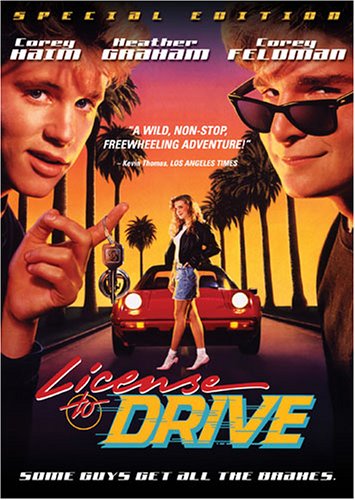Another Green Monday
Andrew Revkin, probably the best environmental reporter today, took a buyout from The New York Times after fifteen years on the job. Another casualty of budget cuts, his departure will leave a definite void in the Times’ coverage of climate change at a time when the issue is bigger than ever. However, not all is grim. In a post titled “My Second Half,” Revkin said he will continue maintaining his groundbreaking blog “Dot Earth” for the NYT because he considers blogging an “unavoidable responsibility of communicators.” Additionally, he is taking a position as a senior fellow for environmental understanding at Pace University as part of the school’s young Academy for Applied Environmental Studies. “But my prime focus now will be education and a broader exploration of new ways to make information work – to give ideas the best chance of getting where they are needed to help advance our relationships to the environment and each other” Revkin said on his last day as a reporter. “I’m convinced that there is vast untapped potential to use the Web and other means to build global awareness and meaningful relationships.”
In a post titled “My Second Half,” Revkin said he will continue maintaining his groundbreaking blog “Dot Earth” for the NYT because he considers blogging an “unavoidable responsibility of communicators.” Additionally, he is taking a position as a senior fellow for environmental understanding at Pace University as part of the school’s young Academy for Applied Environmental Studies. “But my prime focus now will be education and a broader exploration of new ways to make information work – to give ideas the best chance of getting where they are needed to help advance our relationships to the environment and each other” Revkin said on his last day as a reporter. “I’m convinced that there is vast untapped potential to use the Web and other means to build global awareness and meaningful relationships.”
New environmental courses like the Pace University program are the best tools for preparing minds when the world is going one way, people another. When Revkin was 12, in 1968, 3.5 billion people resided on Earth. We’ve almost doubled since - expected to reach 9 billion mid-century - while energy and other resources have grown disproportionately in use. So his thesis for students will be an expansion of Dot Earth’s primary question: 9 Billion People + 1 Planet = ?
“For discussions of the science, they would critically examine the role of “real” skepticism and the perils of oversimplification and advocacy when science meets the media and politics,” he said. Revkin is well-prepared on this front: Through moderating tens of thousands of comments are angry people not interested in learning yet far more individuals with a “thirst for community and understanding and a willingness to encounter contrary views as part of that quest.”
We think Revkin’s own quest will be one worth studying.
After the jump are some stories you might've missed.
Money potentially available for bike / ped projects in Spokane. We are truly grateful that CyclingSpokane has begun using rotating correspondents / bloggers to cover bicycle-related topics in Spokane. What was already the best bike blog in Spokane is now bigger and better. So as we were catching up from being behind around the holidays, we were pleased to see a report about the extension of SAFETEA-LU (Safe, Accountable, Flexible, Efficient Transportation Equity Act: A Legacy For Users) from Staci Lehman of the Spokane Regional Transportation Council. Staci writes, "Why should you care? Because we (we being Spokane Regional Transportation Council) partnered with the Rails to Trails Conservancy on the ‘SmartRoutes’ project to try to get Congress to double the non-motorized transportation budget from $4.5 billion to $9 billion in the next federal transportation budget. If that happens, when they finally get around to reauthorizing the bill, there will be more money available to build bicycling-friendly facilities like bike lanes, trails, paths, etc." Read more of this HERE.
Trees for sale - but not for wood. Get used to stories like this - that's the motto of this story that comes from The Seattle Times. A carbon offset deal recently went down between Jefferson Land Trust and ShoreBank Enterprise Cascadia, a nonprofit financial institution that works with local organizations to promote economic opportunity and a healthy environment. Jefferson Land Trust sold 400 metric tons of its timber resources - that's $8,000, not for board-feet of timber in the Bulis Forest Preserve near Old Fort Townsend, but for the carbon collected in trees that remove it from the atmosphere through photosynthesis, according to the Times. The agreement, made for 100 years, is the first transaction involving carbon credits on the peninsula and the first direct purchase by a firm in the Pacific Northwest. We bring you this story, not because we're in favor of this idea, but because it's the first of its kind. We ask you though, what would you rather see: businesses buying carbon indulgences, or businesses making a concerted effort to be better environmental stewards? Read more of the story HERE.
"Swift" U.S. permitting being expedited for 31 renewable energy and transmission projects in order to make them eligible for stimulus funding. The Oregonian reported last week that the 60 megawatt West Butte Wind Power Project in Central Oregon was among the projects chosen by the BLM as the "first generation of large-scale renewable energy projects to be carefully sited on public lands over the next few years." Read more HERE.
Welcome to the working week: Monday morning photo.
If only Corey and Corey had made a bike film instead. Tandem, of course.
